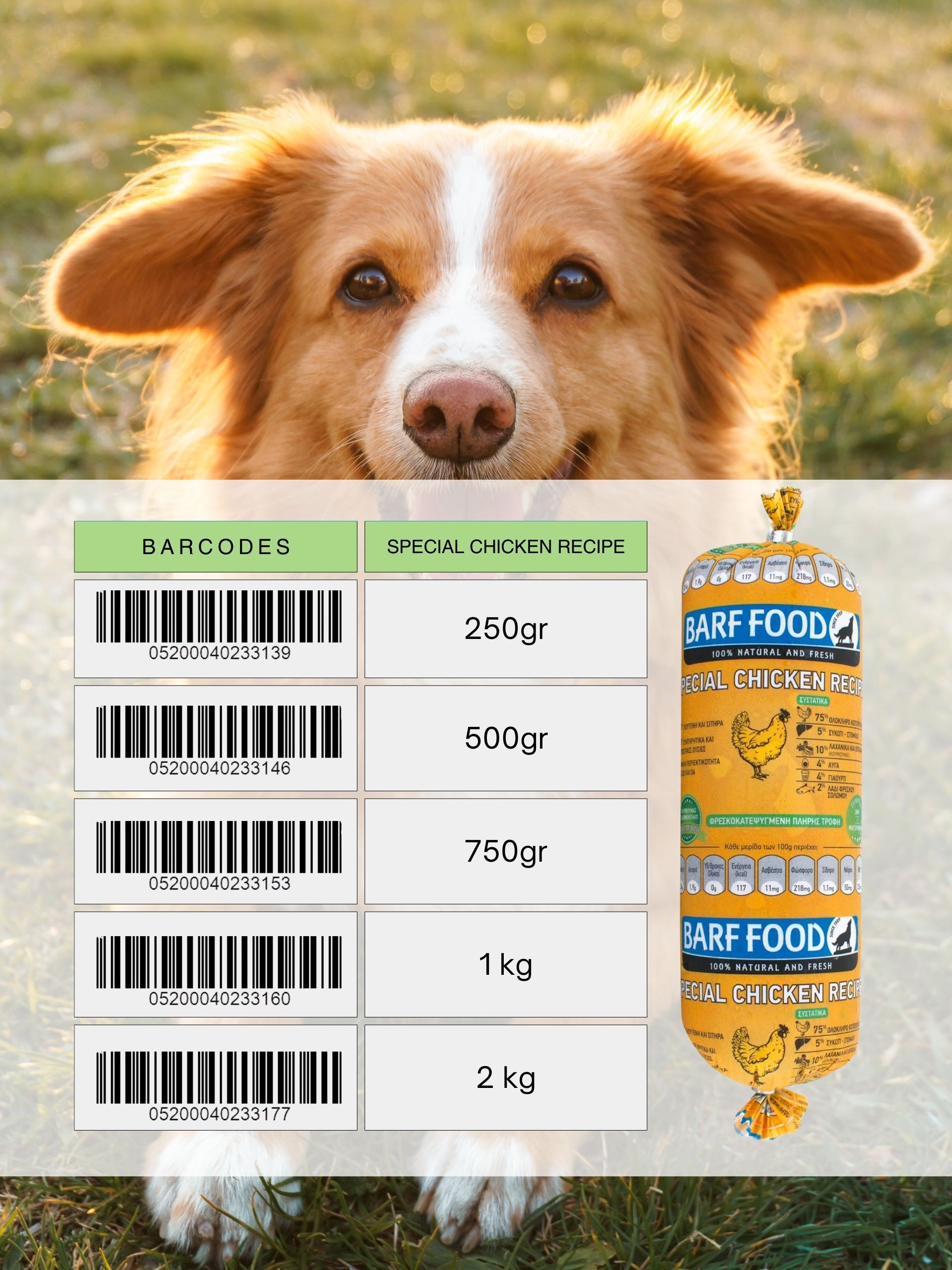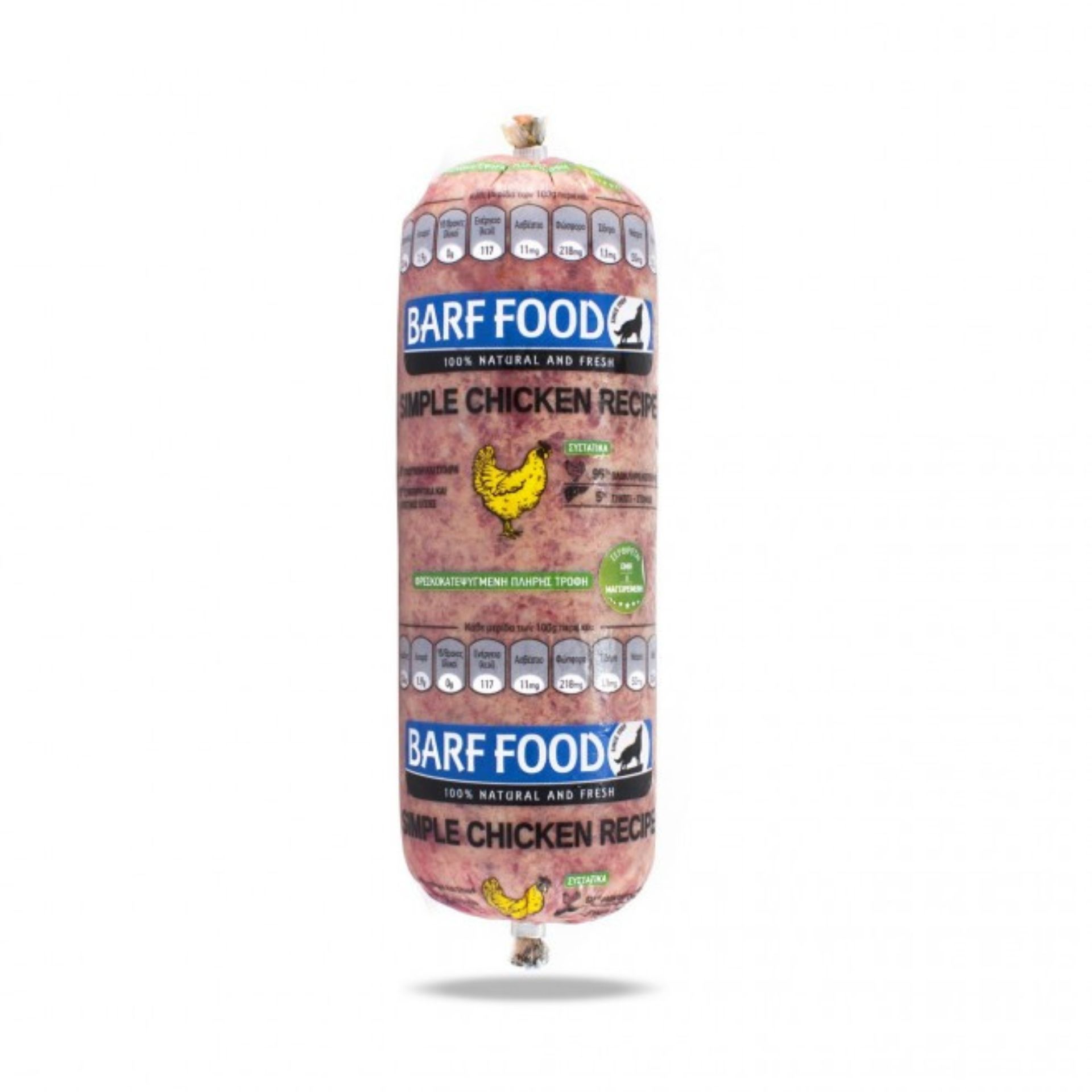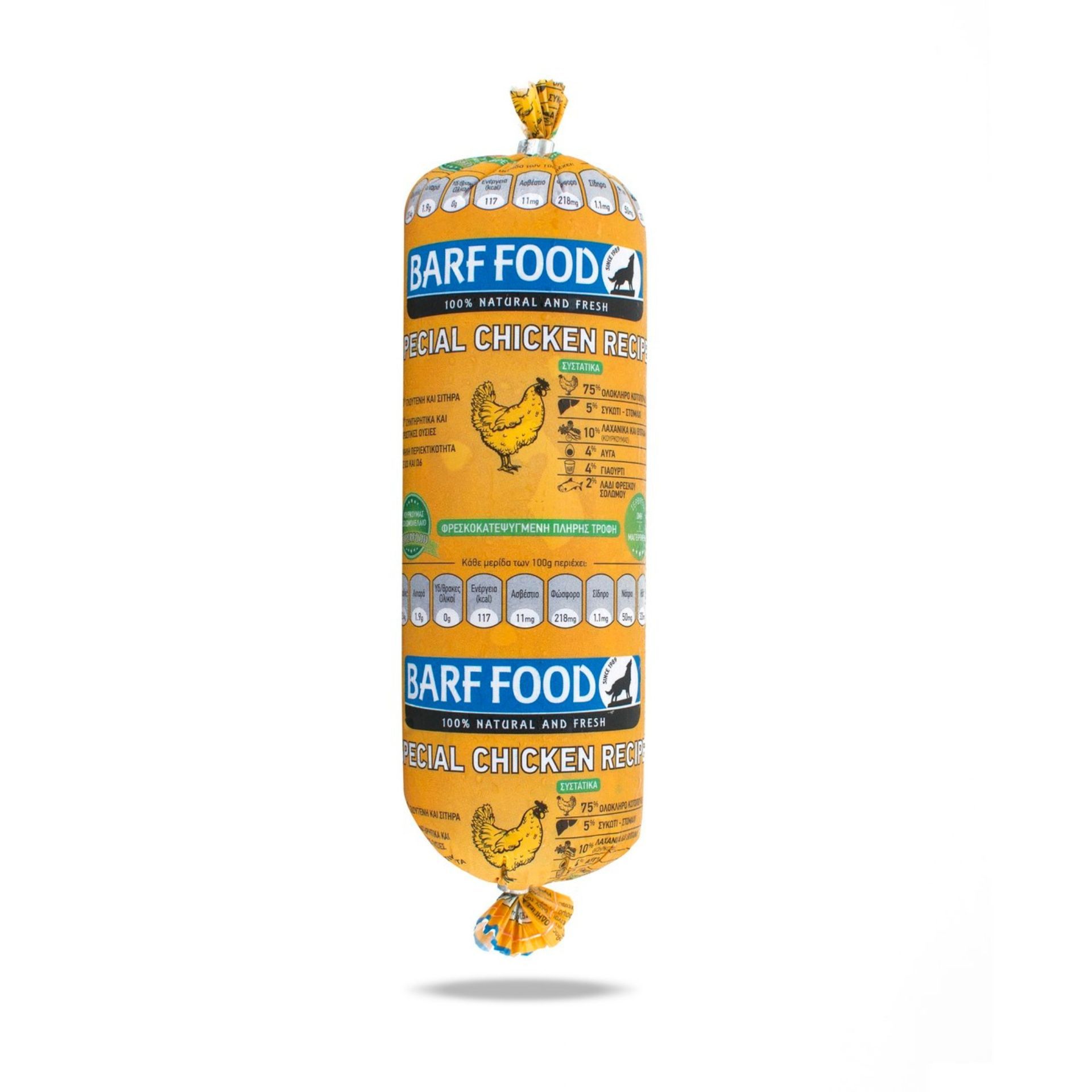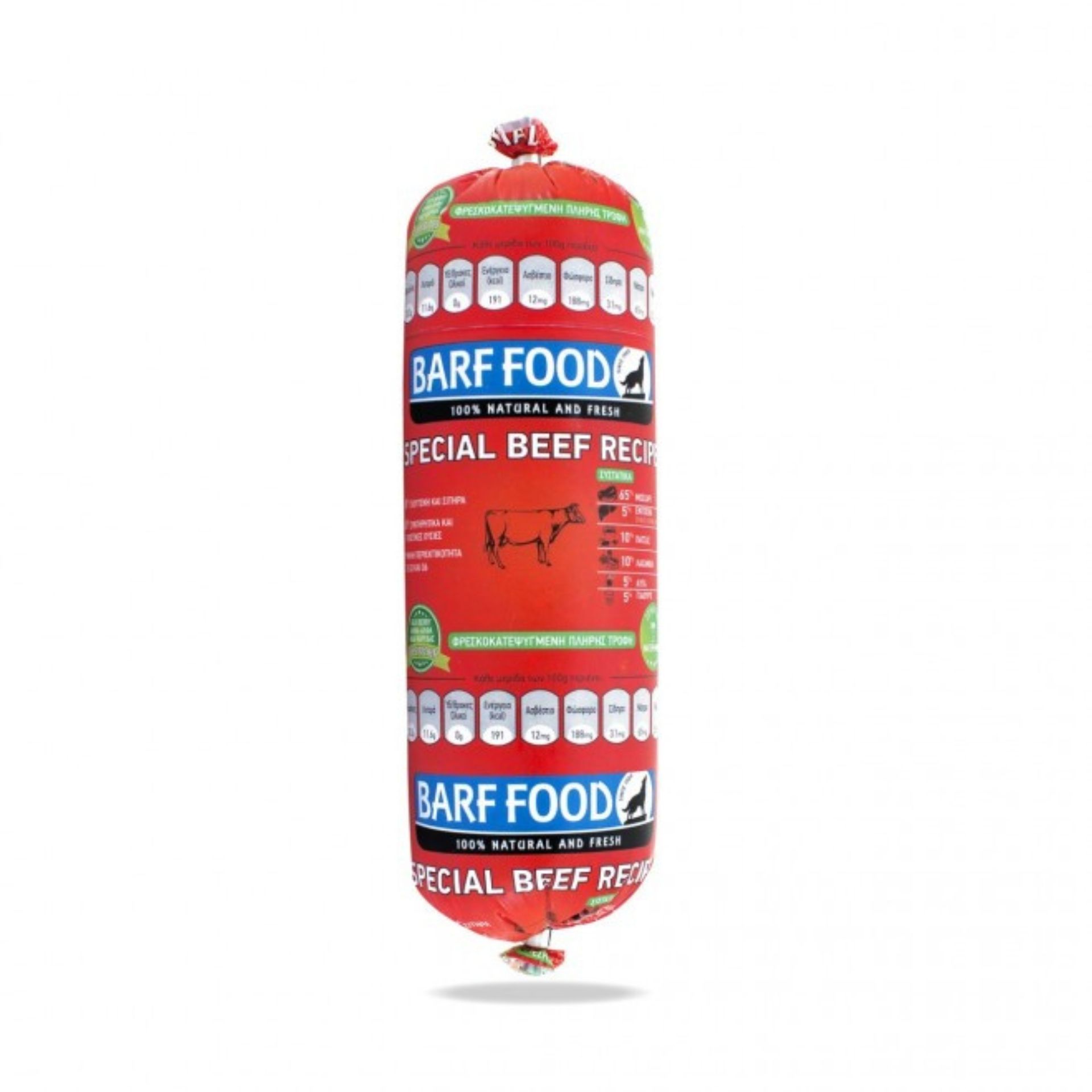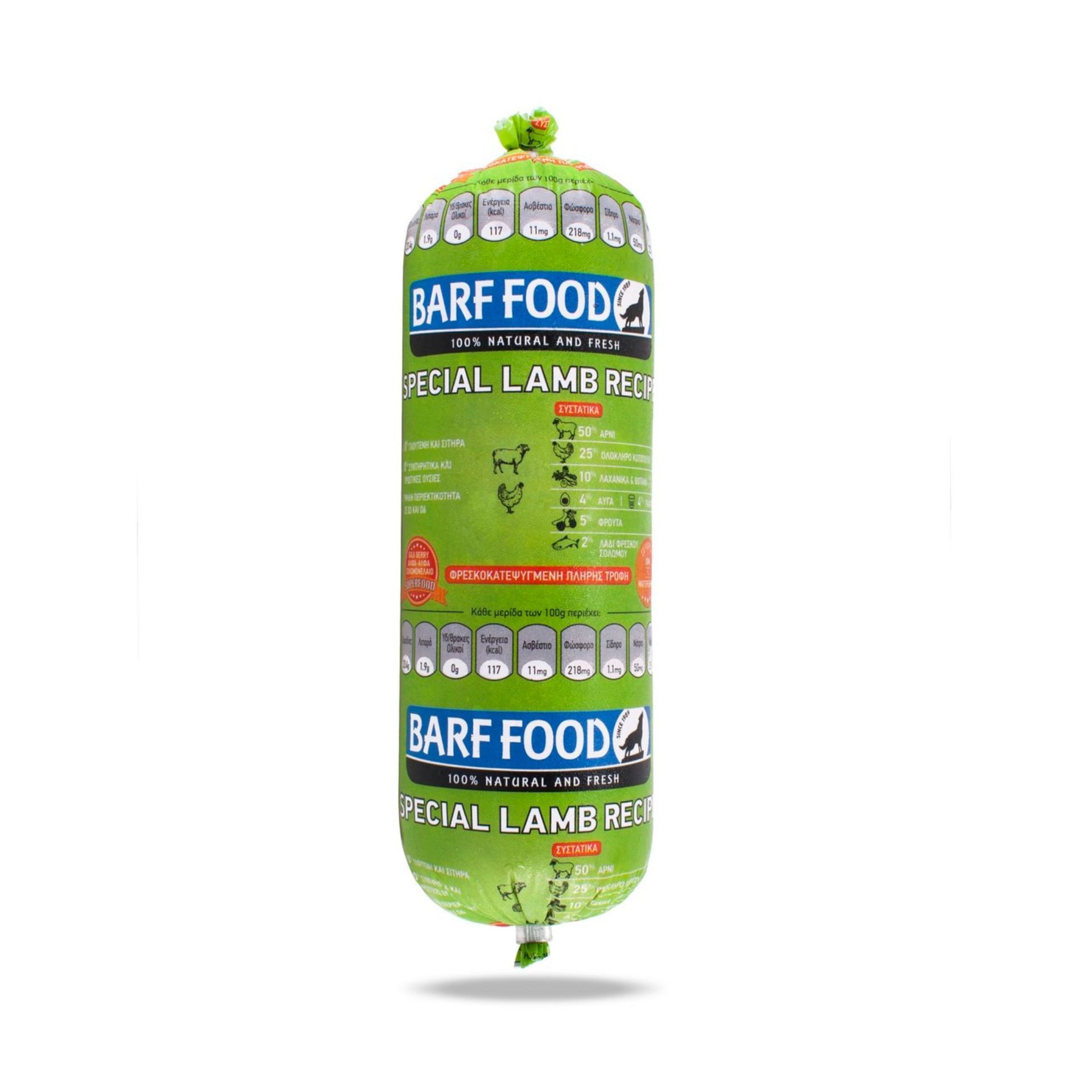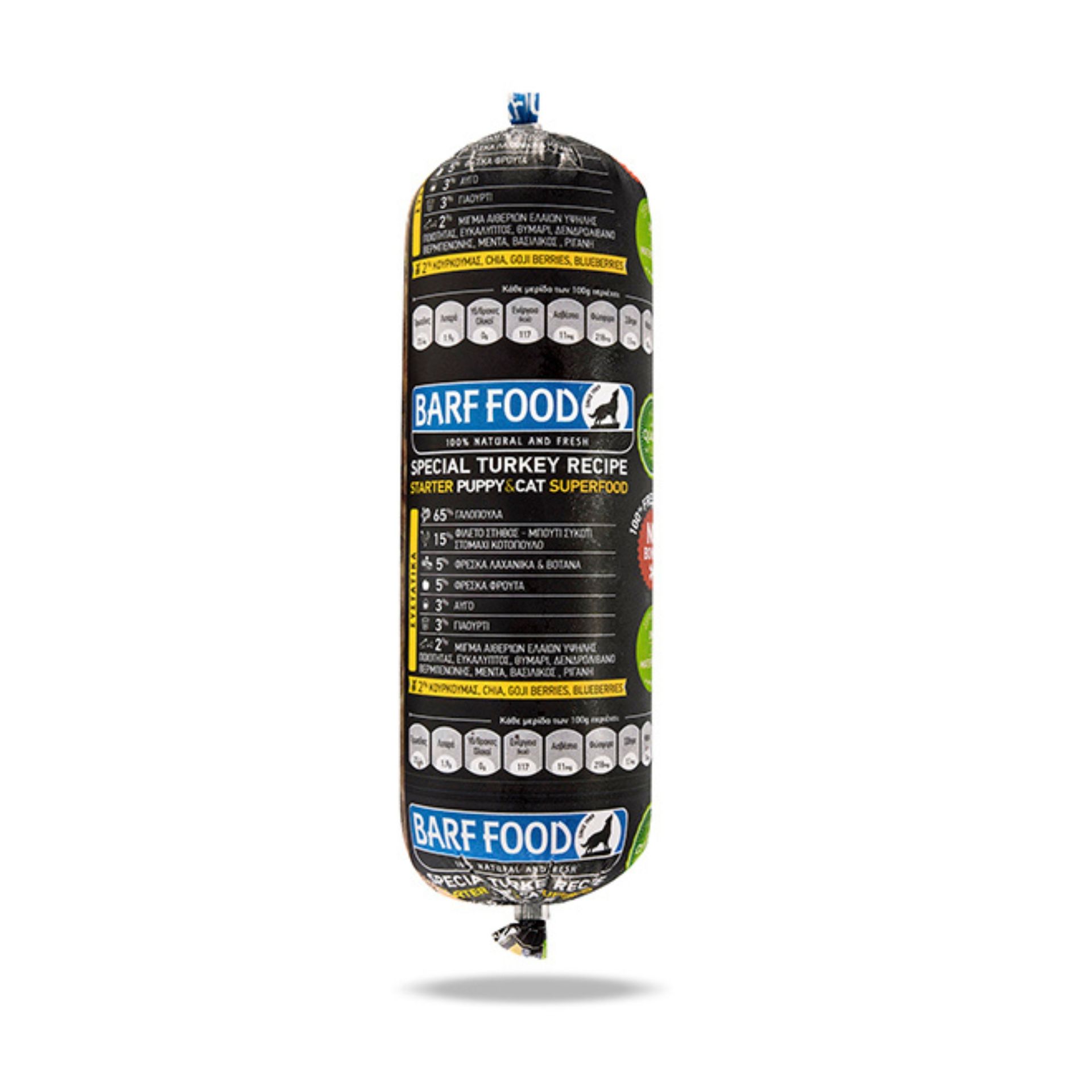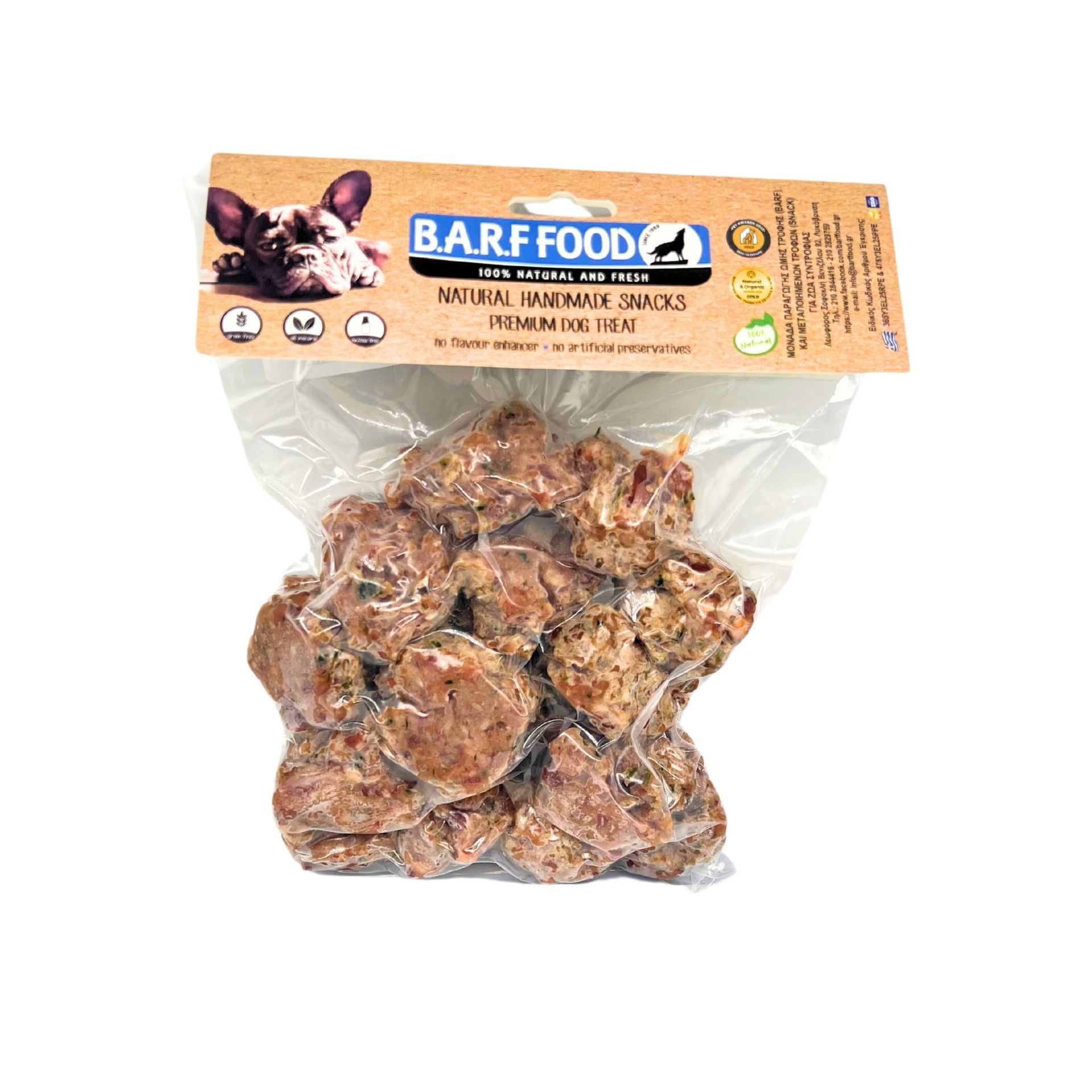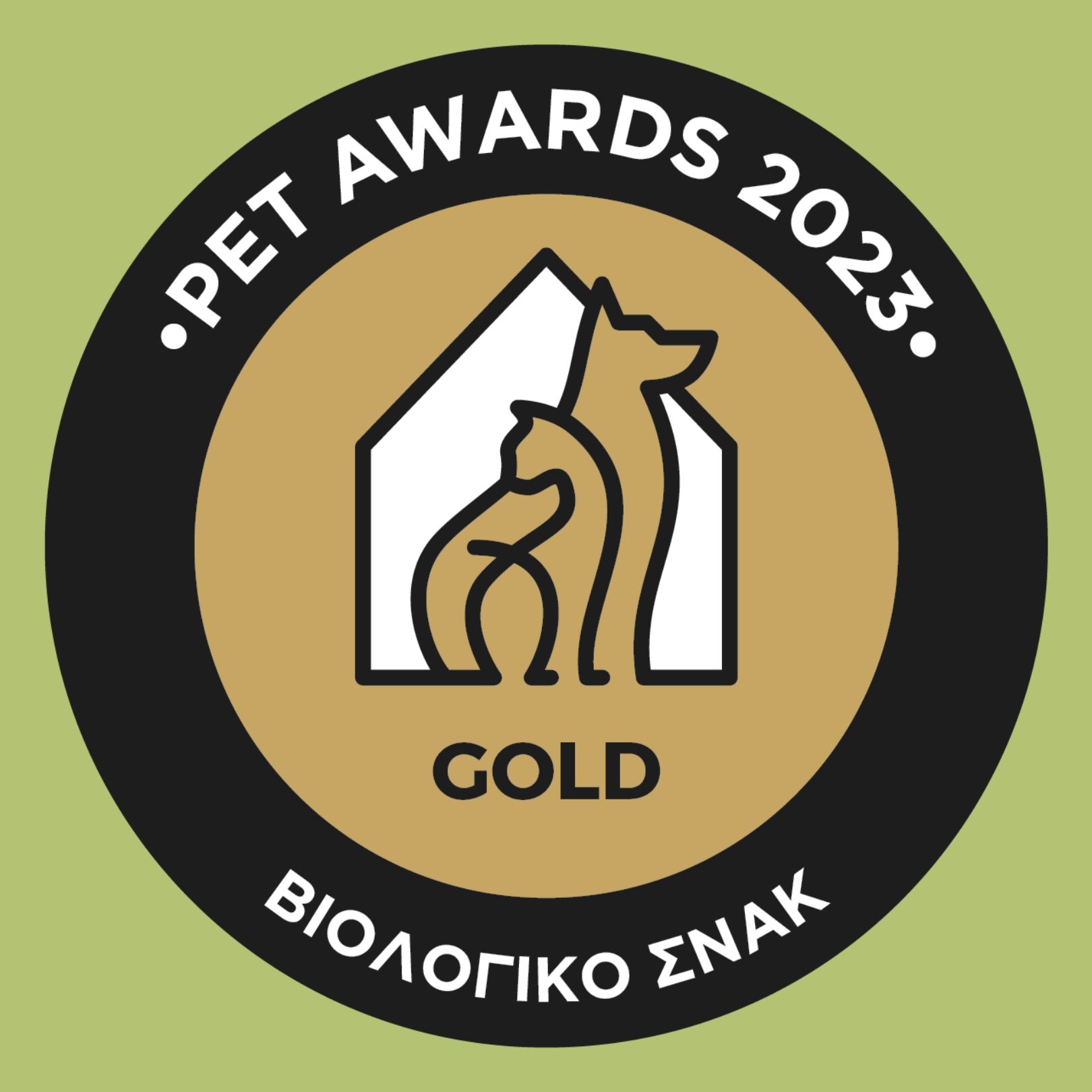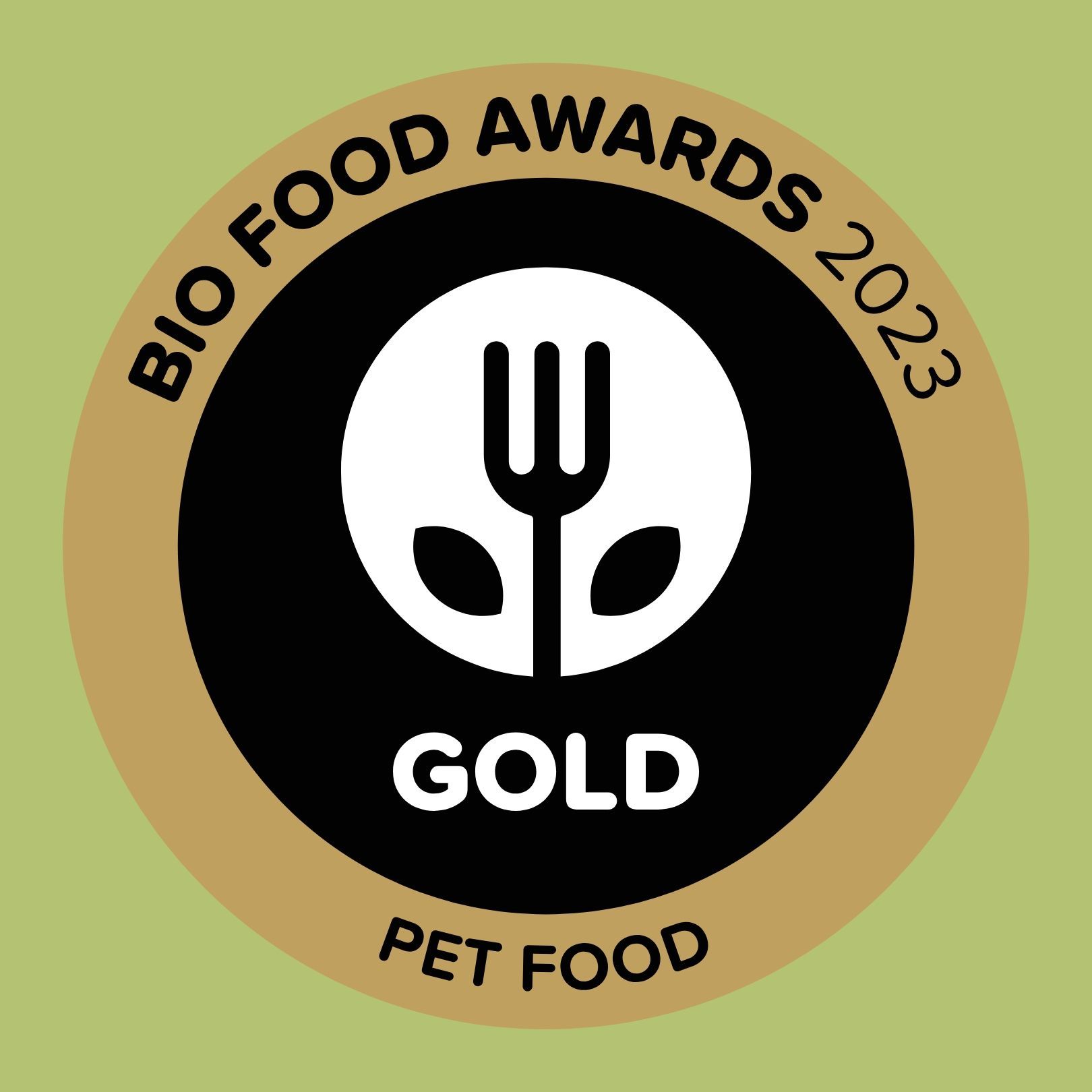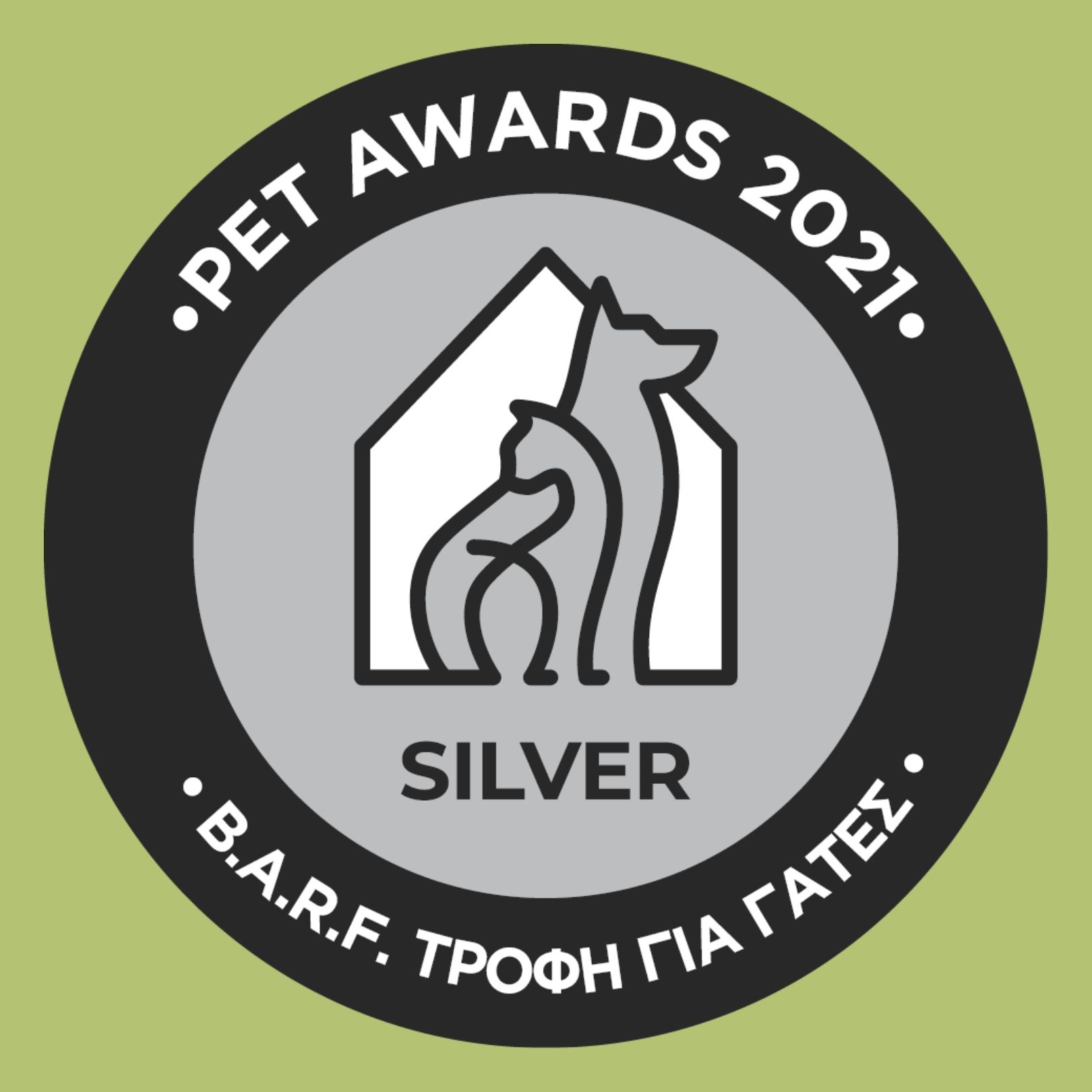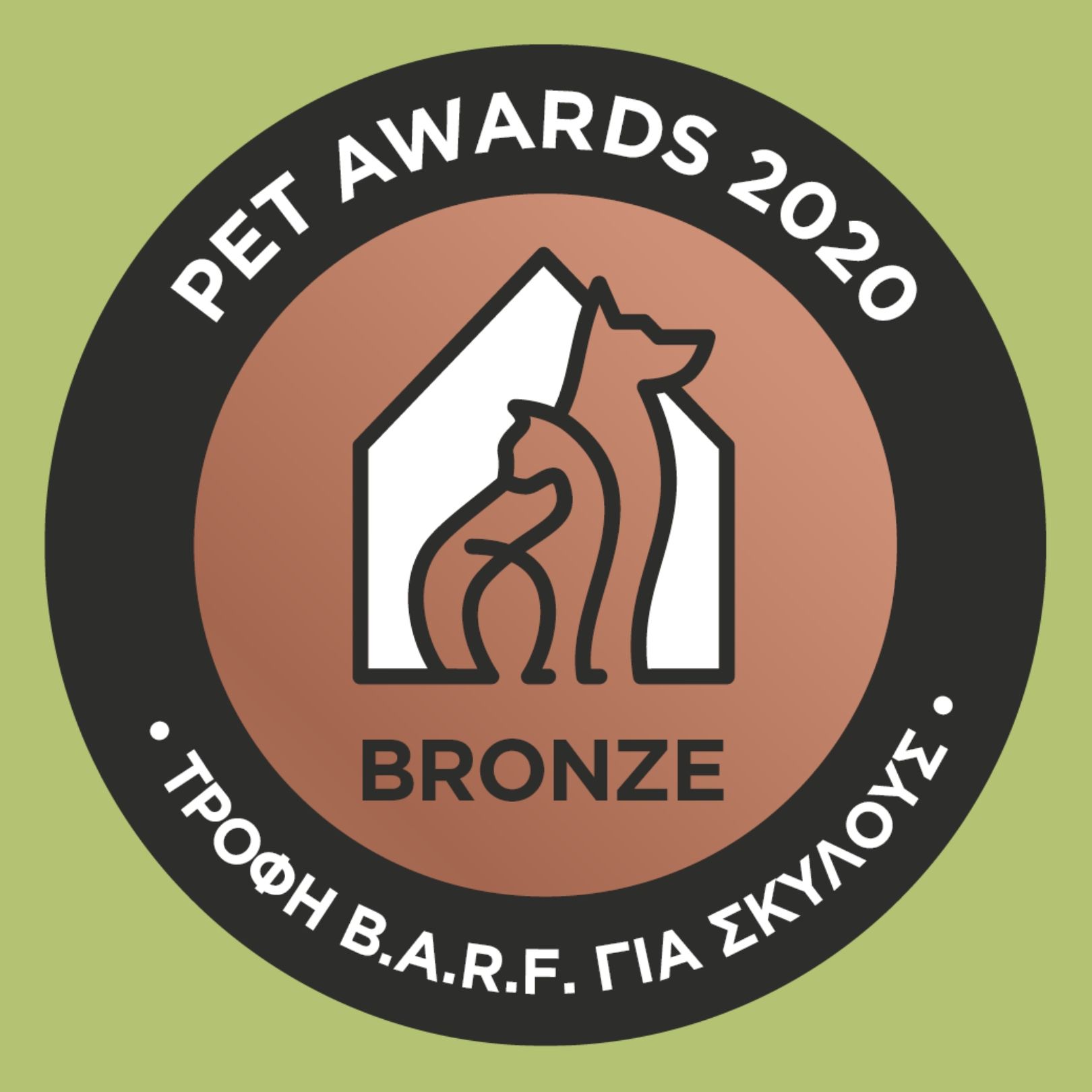B.A.R.F.Food
Special Chicken Recipe

Ideal for:
- Dogs that need increased protein
- Dogs with sensitivity to other meats
- Dogs with high energy needs
Description & Instructions for Use
SPECIAL CHICKEN RECIPE is an excellent pet food, available in frozen form. You can defrost it in three ways: in the refrigerator for up to 24 hours, in cold water for about 1 hour (changing the water regularly), or cooking at 90°C for 30 minutes with the package. Consume immediately after defrosting and do not refreeze
Main Features
- High Protein Content
- Balanced Composition
- 100% natural ingredients
- Easily digestible formula
- SuperFood
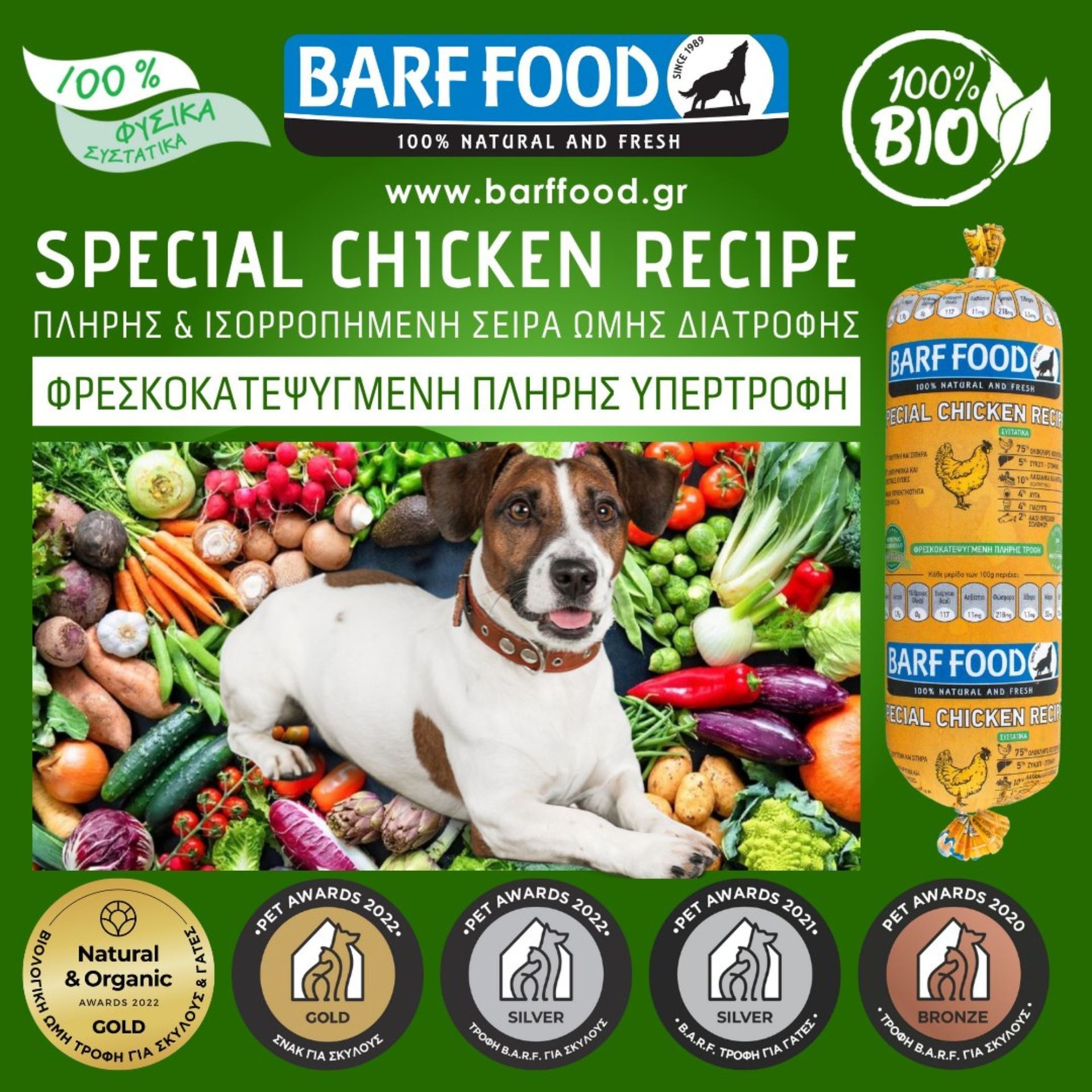
RAW MEAT
Raw meat provides a wealth of amino acids, proteins, enzymes, antioxidants, vitamins (A, C, D, E, K, B1, B2, B3, B5, B6, B12), iron, biotin, choline, folic acid, inositol, iodine, pantothenic acid, fatty acids, calcium, phosphorus, magnesium, iron, potassium, chromium, manganese, selenium, sodium, vanadium, zinc, and coenzyme Q10. Raw meat also regulates the body's pH, thus aiding digestion and reducing degenerative and inflammatory problems associated with excessively acidic systems.
OFFAL (Liver, Kidneys, Heart, Stomach)
The liver is rich in vitamin A, manganese, selenium, choline, inositol, and iron. It contains vitamins D, E, K in significant amounts. It is an excellent source of zinc, minerals, and vitamin C. It also contains the entire B vitamin complex. It is a source of quality protein, omega-3 and omega-6 fatty acids. It should be given in small quantities but on a regular basis. Like the liver, kidneys and heart provide the dog with high-quality proteins, essential fatty acids, and all fat-soluble vitamins A, D, E, and K. Kidneys are also a rich source of iron and contain zinc and all B-complex vitamins, and the heart is an excellent source of vitamins, protein, and iron. It contains some essential fatty acids as well as taurine which strengthens the heart.
VEGETABLES (Cabbage, Lettuce, Spinach, Beetroot, Swiss Chard, Parsley, Carrot)
In nature, dogs do not eat vegetables except for those possibly contained in the stomach of their prey. They eat them processed and not in their original form, because their digestive system does not have the ability to break down cellulose, a substance that vegetables contain. That's why we puree the vegetables to break down the cell walls and release the nutrients.
EGGS
Eggs are a source of:
Vitamin B2 (contributes to proper vision and correct metabolism),
Vitamin B12 (is essential for RNA and DNA development & also helps in the metabolism of fats and proteins).
Pantothenic acid is necessary for the metabolism of food into energy and for the production of certain hormones and cholesterol.
YOGURT
Yogurt acts as a protective factor against infections. The lactobacilli it contains pass into the digestive system, improving the intestinal microflora and protecting it from the development of pathogenic microorganisms. At the same time, yogurt improves the bioavailability of other nutrients. It increases the absorption of calcium and B-complex vitamins. It improves digestion. Yogurt contains high levels of proteins, calcium, phosphorus, potassium, molybdenum, zinc, B2, B5, and B12.
COMPOSITION
| Ingredient | Percentage |
|---|---|
| Whole chicken | 75% |
| Liver - Stomach | 5% |
| Seasonal vegetables and herbs (turmeric) | 10% |
| Eggs | 4% |
| Yogurt | 4% |
| Fresh Salmon oil | 2% |
ANALYTICAL COMPOSITION
| Nutrient | Quantity |
|---|---|
| Proteins | 27g |
| Fats | 8g |
| Carbohydrates | 0g |
| Energy | 249kcal |
| Calcium | 15mg |
| Phosphorus | 235mg |
| Iron | 1.5mg |
| Sodium | 82mg |
| Potassium | 223mg |







